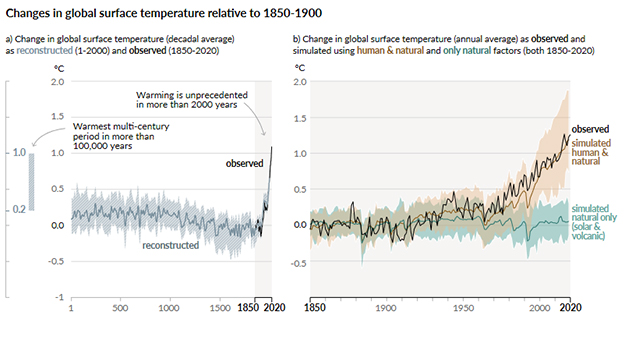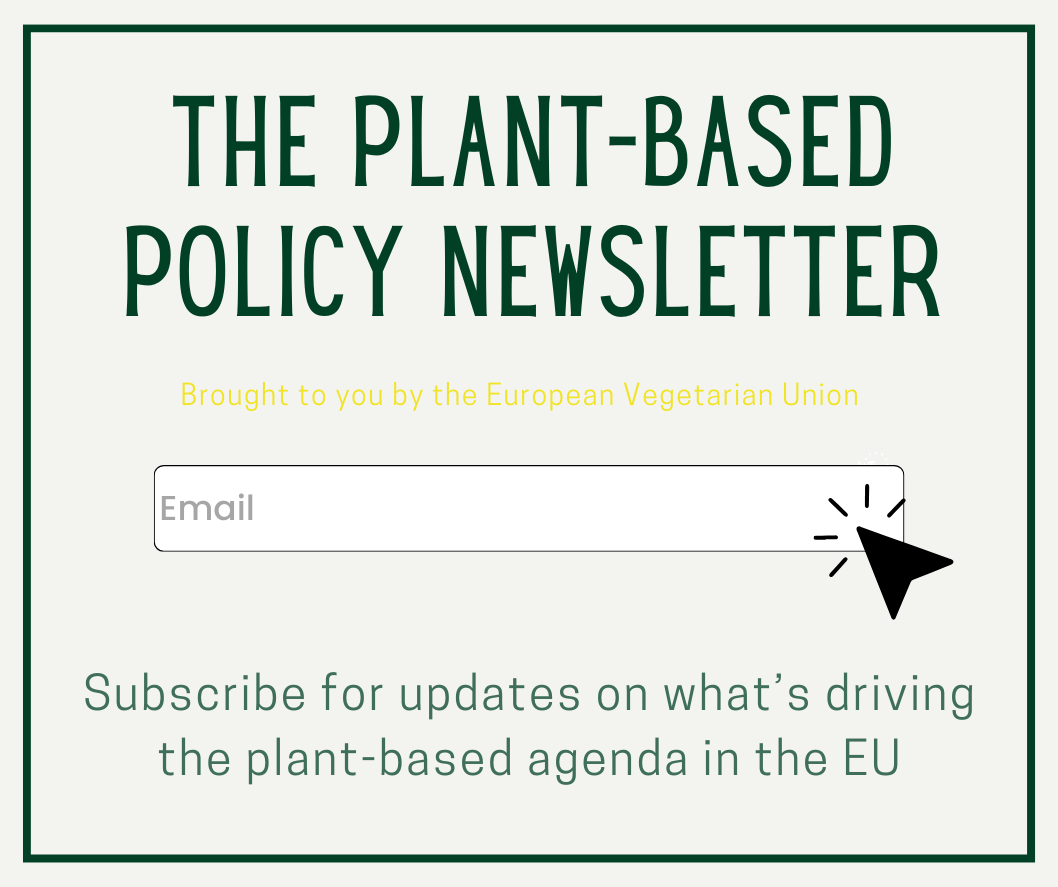Established in 1988 as a component of the United Nations, the Intergovernmental Panel on Climate Change (IPCC) is a body of scientists and researchers who compile the thousands of studies and observations that contribute to our understanding of climate change into reports for policymakers and the public to understand the drivers and consequences of climate change.
IPCC’s most recent report, released on 9 August 2021 lays out, in stark terms, how climate change is affecting us now, what the future of climate change will look like, and what steps we can take to mitigate and diminish the effects of climate change. This report is the sixth assessment that IPCC has released, building on previous reports including a 2020 report on Climate Change and Land and offers the most comprehensive, unequivocal evidence that anthropogenic activities are driving climate change.
Emissions as drivers of climate change
The report’s findings are alarming, predicting 1.5 degrees of warming by 2030 and the possibility of runaway warming unless immediate actions are taken. It presents clear evidence that human activities have, in the last 170 years, veered the climate far off of its natural course.

The report states with high levels of confidence, that in 2019 CO2 levels in the atmosphere were at their highest levels at any point in the last two million years, while methane and nitrous oxide levels are higher than at any point in at least the last 800,000 years. (A.2.1 2021). These changes are caused by a variety of factors, but among the largest contributors to increases in GHG levels in the atmosphere are increases in CO2, methane, and nitrous oxide. Land use, including agriculture, creates 13% of CO2 emissions, 44% of methane emissions and 81% of nitrous oxide emissions. All totaled, this averages to about 23% of anthropogenic GHG emissions.
For life on earth, these climatic conditions have meant that extreme weather events are more common, although different parts of the world have experienced climate change to different degrees and in different ways.
Limiting Climate Change
Dramatic, immediate action is required to limit anthropogenic global warming. These actions would need to include a strict carbon budget while we make a sustained effort to reach net zero CO2 emissions, as well as dramatic reductions to other greenhouse gasses, especially methane. (D.1 2021). This will require shifts in human lifestyles as natural carbon sinks have limited capacities.
Food and agriculture
The 2021 report builds upon other reports released by IPCC, including the IPCC Land Report, which outlines the impacts of, and the mitigation strategies for land use, including agriculture. Under current practices, emissions from agriculture and other land uses are almost certain to rise as population and incomes increase, leading to changes in consumption patterns
If we do nothing, we risk falling into a vicious cycle where increased demand increases emissions, leading to the degradation of land used for agriculture. On top of that, increased urbanization risks overrunning agricultural land. Deforestation and ecological degradation to increase farmland removes natural resources and carbon sinks that help us decrease GHG emissions. Even now, in a period where climate change has just begun to take its toll on our Earth systems, 821 million people are malnourished.
With every half degree of warming, the threats of extreme weather increase. This includes droughts that could devastate farm land and water resources, which now happen 1.7 times a decade, will happen two times a decade at 1.5 degrees and 4 times a decade at 4 degrees warming.
To avoid the further degradation of land and increases in food insecurity requires sustainable management of current and future agricultural lands. Public awareness of the environmental toll of land-degrading agricultural practices can incentivize more sustainable land management practices. Public health policies that improve nutrition and influence the demand for food and promote sustainable diets can be an important action by policymakers that enable more sustainable land management practices.
Besides influencing social learning and market changes, IPCC suggests policies that empower farmers, who often face their own instability and lack of access to resources and advisory services, as well as a lack of knowledge and experience as an important component of more sustainable land management. Further, there is a need to include the voices of indigenous people and women, who have considerable knowledge that can help promote sustainable land development but are often shut out of the conversation and often excluded from farming.
Changing our relationship to food and agriculture is a difficult task. However, IPCC warns that delayed action will only serve to exacerbate problems while possibly diminishing the effectiveness of mitigation strategies. Bold action now could avert or reduce the risk to the millions of people who face climate catastrophes.
Promoting a plant-based diet, educating and enabling the public and farmers to make the switch to a plant-based focus and reducing our reliance on animal agriculture can not only reduce our emissions, but free up precious land and resources around the world for better uses.


